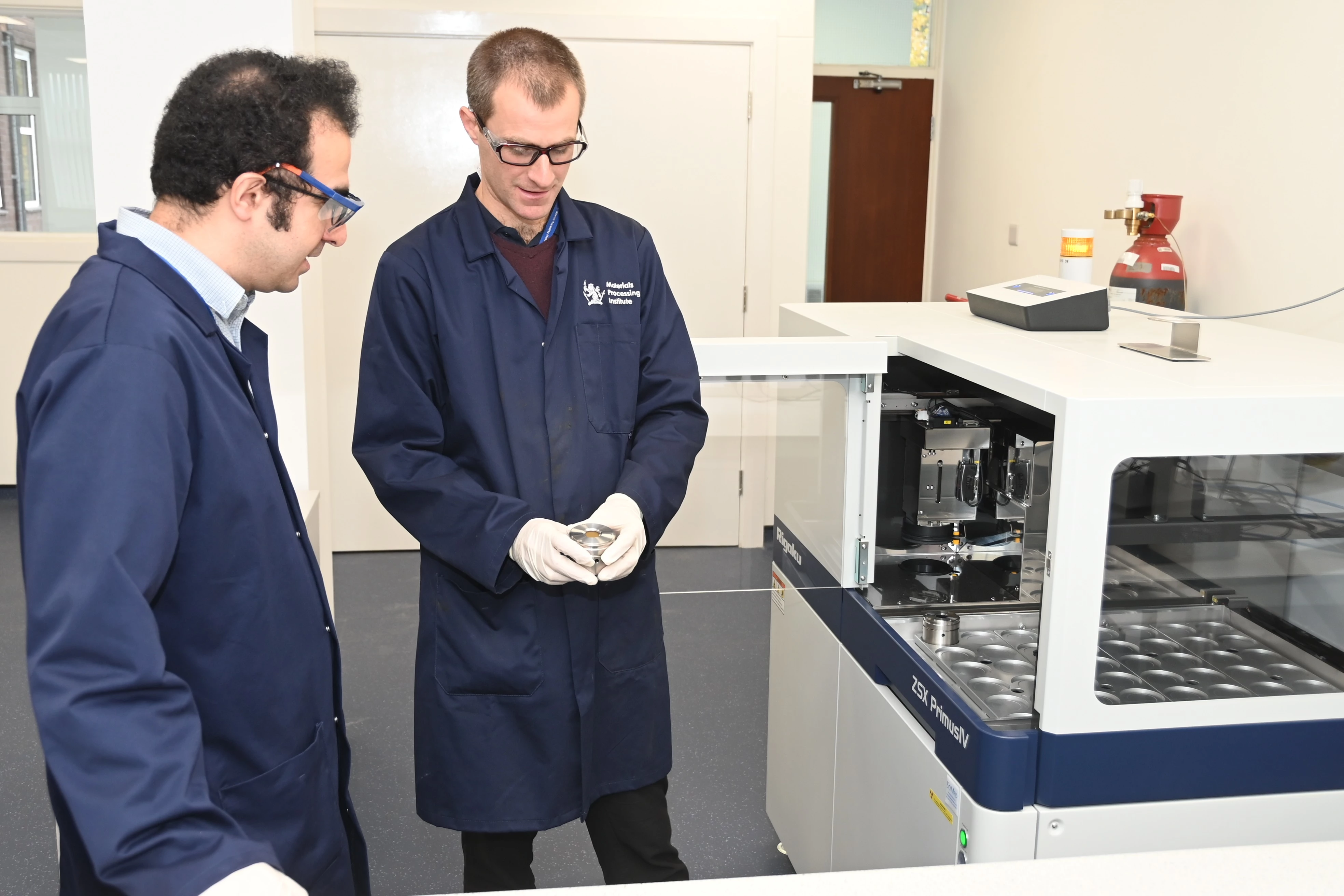
Partner Article
Materials Processing Institute invests in state-of-art spectrometer to aid cutting edge research
The Materials Processing Institute has invested in a state-of-the-art X-ray fluorescence (XRF) spectrometer that will allow researchers to accurately analyse the composition of a wide range of materials.
Purchased from SciMed, in Stockport, and housed in the Materials Characterisation Centre at the Teesside-based Institute, it has the capability to analyse the constituents of virtually any inorganic material.
The spectrometer will initially be used to support three main areas of research. It will be used in the “Upgrading Basic Oxygen Steelmaking (BOS) Slag” project, an InnovateUK funded project, to evaluate the characteristics of modified slag samples. This project is in collaboration with Glass Futures Ltd, Tarmac, British Steel, and PWS Road Building Services and aims to develop new high-grade road surfacing material.
The spectrometer will also support ongoing research into determining optimum combustion conditions to increase furnace efficiency through fuel ash analysis. There is also further research work to recover zinc from the steelmaking process.
The investment is part of £22m awarded to the Institute announced last March by Chancellor Rishi Sunak, as part of the PRISM five-year research and innovation programme, led by the Institute to revolutionise the steel and metals sector, with funding provided through Innovate UK, part of UK Research and Innovation.
Designed to extend the analytical range down to light elements, this spectrometer, one of the most advanced in the UK, allows the determination of compositional changes through a sample of material. It also provides the capability to test powders and liquids. It will be used by researchers in the Institute’s Advanced Materials Group in developing new materials and processes required for future technologies, including electric and hydrogen powered vehicles, clean energy, and low carbon processing.
Chris McDonald, Chief Executive of the Institute, said: “The investment in state-of-the-art scientific equipment, and in the training of our staff in their use, reflects the Material Processing Institute’s position at the cutting edge of research.”
Phil Russell, Product Manager at SciMed, said: “The technology within this spectrometer offers new capabilities to the Materials Processing Institute. It will enable more detailed materials analysis such as mapping of composition where very light elements could be included, as well as the traditional analysis capability of a high power WDXRF instrument. We are looking forward to continuing to support the Institute with the integration of this Primus IV spectrometer into their research and analysis capabilities.”
Talking about the importance of continuous innovation in key industries, Chris McDonald added: “It is essential this country continues to innovate and establish a technological lead in the transformation of our foundation industries, including steel and metals.
“The Institute is involved in a wide range of research involving low carbon, electric, and hydrogen-based steelmaking and in the development of more efficient and sustainable processes. This is vital if the UK is to meet its carbon reduction targets.”
This was posted in Bdaily's Members' News section by Joseph Sayer .
Enjoy the read? Get Bdaily delivered.
Sign up to receive our daily bulletin, sent to your inbox, for free.




 test article 123456789
test article 123456789
 hmcmh89cg45mh98-cg45hm89-
hmcmh89cg45mh98-cg45hm89-
 test456456456456456456
test456456456456456456
 test123123123123123123
test123123123123123123
 test xxxdiosphfjpodskhfiuodsh
test xxxdiosphfjpodskhfiuodsh
 Savour the flavour: North Tyneside Restaurant Week returns for 2024
Savour the flavour: North Tyneside Restaurant Week returns for 2024
 Six steps to finding the right buyer for your business
Six steps to finding the right buyer for your business
 Stephen signs off on a special night
Stephen signs off on a special night
 Life’s a Peachaus: Gillian Ridley Whittle
Life’s a Peachaus: Gillian Ridley Whittle
 Making a splash: Phil Groom
Making a splash: Phil Groom
 Making workplace wellbeing a priority
Making workplace wellbeing a priority
 A record of delivery, a promise of more: Ben Houchen
A record of delivery, a promise of more: Ben Houchen